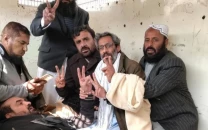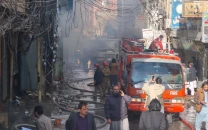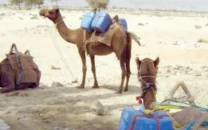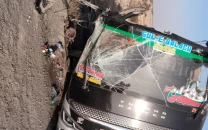Training the Baloch youth
Before initiating any construction work on IP pipeline, youth of these areas may be first trained for its construction

The writer is a Member Provincial Assembly, Balochistan
Balochistan is rich in natural resources. It is estimated that the province has ample resources of copper, marble, granite, gold, antimony, iron ore, lead-zinc ores, manganese ore, gypsum, barites, coal, gas reserves and up to 750 kilometres of coastal area. But despite the abundance of resources, Balochistan is the most remote and marginalised province of Pakistan.

The plight of socioeconomic conditions together with the geo-strategic location of Balochistan has made this province a hotbed of the global great game that has resulted in insurgency. Nearly 60 per cent people are living below the poverty line, 70 per cent people are exposed to food insecurity, prevalence of maternal anaemia is high and 2.3 million children are out of school.
Aristotle said that poverty is the mother of revolution and crimes. How great it would be if peace and prosperity is brought to Balochistan by alleviating poverty. Recently, I happened to attend a ceremony held in Quetta regarding the Prime Minister’s Youth Skill Development Programme. The programme reflects the prime minister’s vision and aims to impart skills to youth. Training will be given to unemployed youth so that they may become skilful and play a role in economic activity in the country.
Since the last couple of years, the Iran-Pakistan gas pipeline project is an important subject whenever there is debate on the energy crisis in the country. Two of the most important hurdles in the way of construction of the Iran-Pakistan gas pipeline are the financial constraints and security hazards. Financial issues cannot be solved if security hazards are not mitigated. The world is moving towards transformational development through a participatory approach in which people have the power to play a frontline role.
The security hazards can easily be solved if the traditions of Balochistan are invoked and carefully used. For example, suppose the Iran-Pakistan gas pipeline passes through volatile areas of Balochistan in which there is insurgency. If so, before initiating any construction work of the pipeline, the youth of these areas may be first given training for the skills needed for the construction of the pipeline. Once the youth is trained, all of them may be recruited for construction work. During the construction activity, the local youth may be given competitive salary at their doorstep. After completion of the pipeline, the same youth may be given jobs for the security and maintenance of the pipeline. The local tribal chief may be also given authority for supervision of the pipeline passing through his area. He may ask the district or provincial administration in case he needs help or there is a major problem. A separate budget may be allocated for this purpose along with the appointment of a division coordinator in these areas across Balochistan.
Skills training through technical vocational education and training in the pipeline construction will not only ensure job opportunities for the youth of volatile areas from where the pipeline has to pass but it will also help in improving human development indicators in these areas.
Published in The Express Tribune, June 20th, 2014.
Like Opinion & Editorial on Facebook, follow @ETOpEd on Twitter to receive all updates on all our daily pieces.



















COMMENTS
Comments are moderated and generally will be posted if they are on-topic and not abusive.
For more information, please see our Comments FAQ